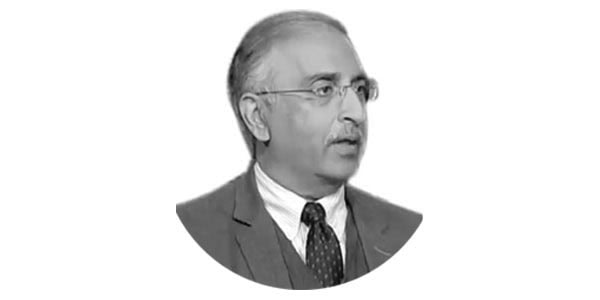Separating economics from politics
The good news is that the worst of the currency crisis seems to be behind us. Imports have come down and so has the current account deficit.
The stock market is also giving out positive vibes. We may only be a few weeks away from exiting FATF’s dreaded ‘gray list’. In all probability, the period of maximum economic stress is behind us.
To be certain, potential political chaos still threatens our economy. Our politicians are now unable to resolve their political disputes through political means.
As a consequence, the Supreme Court of Pakistan is being sucked into resolving disputes that are purely political in nature.
Lo and behold, in an extremely polarized society this is a perfect prescription for the Supreme Court’s self condemnation. Look at how the political actors are taking turns in attacking the Supreme Court and the Election Commission of Pakistan. Yes, we may indeed be heading towards some sort of an institutional collapse.
Political chaos can lead Pakistan into a vicious cycle. A vicious cycle is a “sequence of reciprocal cause and effect in which two or more elements intensify and aggravate each other, leading inexorably to a worsening of the situation.” When an import-dependent country runs out of dollars the country’s currency begins to lose its value against the dollar.
A crashing currency means a lot of imported inflation. Price of everything that is imported goes through the roof-petrol, diesel, gas, coal, palm oil, wheat, sugar, cotton, electronic equipment, machinery, steel, plastics, chemicals, coffee, tea and rubbers.
Inflation means poverty and unemployment. Poverty and unemployment means social unrest. Social unrest, over time, changes into violent protests. And violent protests means troop deployment.
We are an import-dependent country. For years, we have been running large trade deficits. For years, we have been borrowing dollars to finance those trade deficits.
For years, we have been extracting geo-political rents from the US, Saudi Arabia, the UAE-and China. More recently, the US has been recalibrating its foreign policy-so are Saudi Arabia, the UAE and China.
The pandemic ended up in a commodity price supercycle. Remember, commodity price supercycles are “extended periods during which commodity prices are well above their long-run trend.”
Historically, commodity price supercycles have lasted longer than business cycles with an average life-span of six to eight years. Consequently, the prices of our imports have doubled, tripled or quadrupled in some cases while the prices of our exports-mostly cotton related-have not budged much.
In the midst of a commodity price supercycle and at the tail-end of our geo-political rent seeking we now have four additional burdens to contend with: an economic meltdown, an extremely polarized society, a complete political breakdown and an impending institutional collapse.
The saddest part of the story is that all of this is happening to an entity that is rich in both talent and resources. The best part of this story is that this is all reversible.
Question: Where did we go wrong? Answer: Our political decision making process has been grossly miss-allocating our national resources.
Question: Where did we really go wrong? Answer: Our politically-influenced resource allocation decisions have not been in the greater public or national interest.
We now need to erect a firewall between politics and economics. We need to establish a ‘political sphere’ and a separate ‘economic sphere’.
We need to cut-off the allocation of resources from the ‘political sphere’. We need to establish a ‘structural separation’ between politics and economics.










